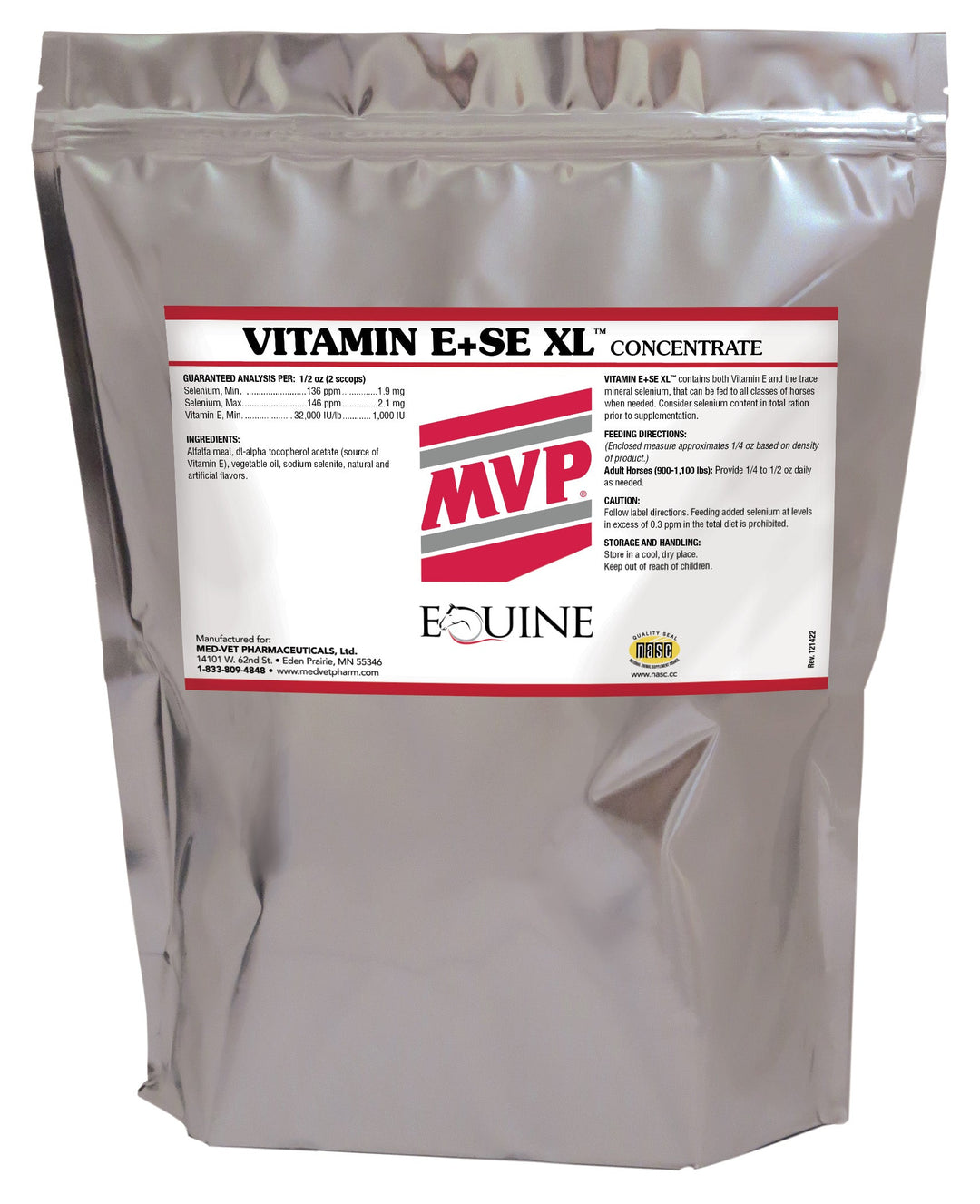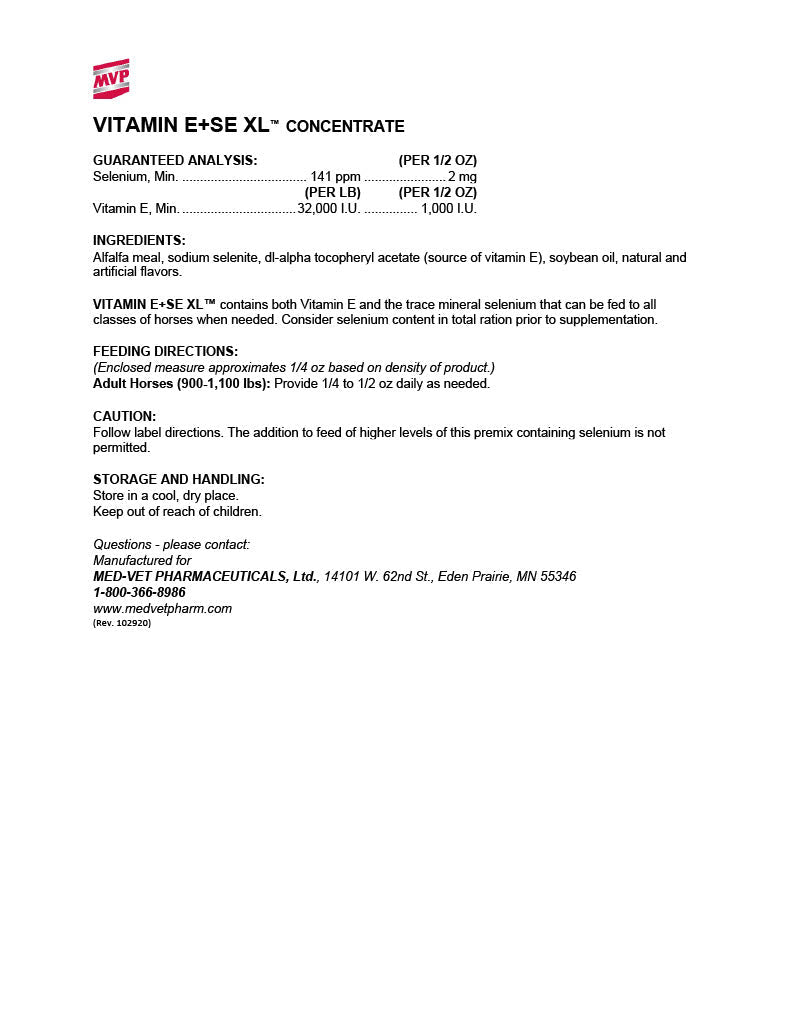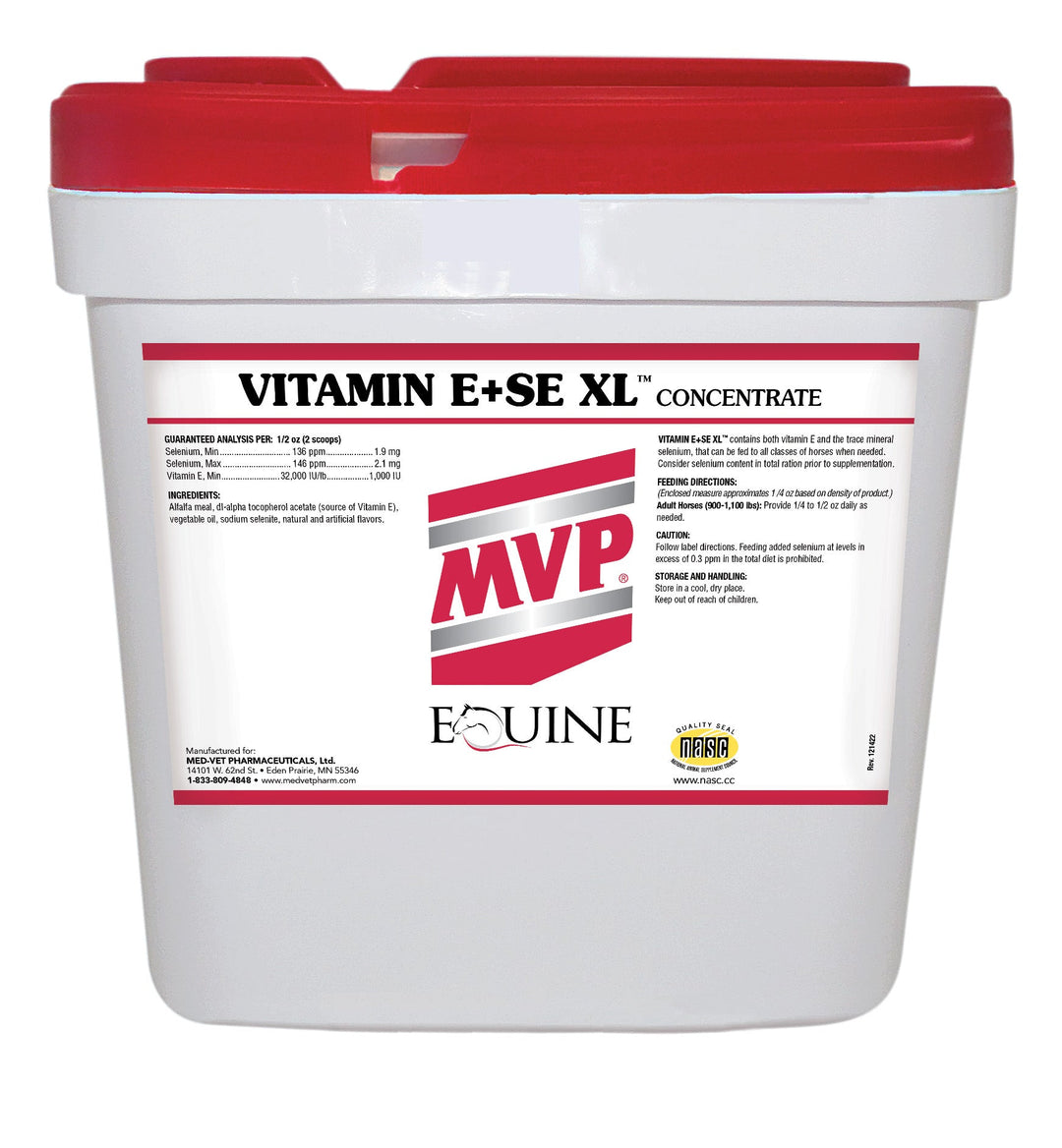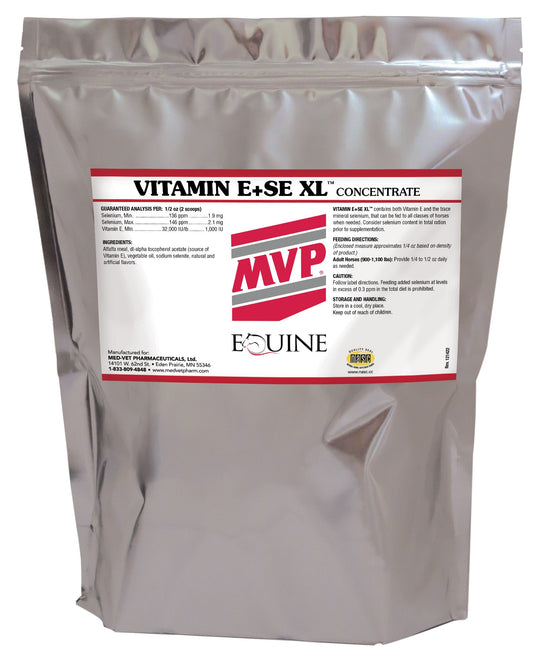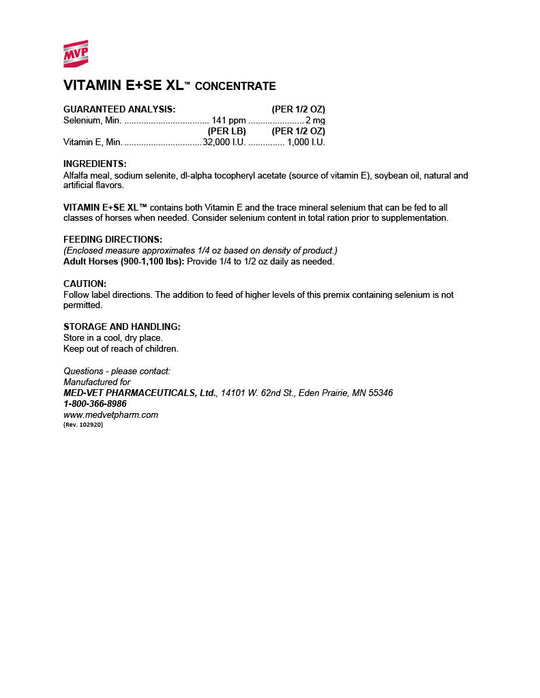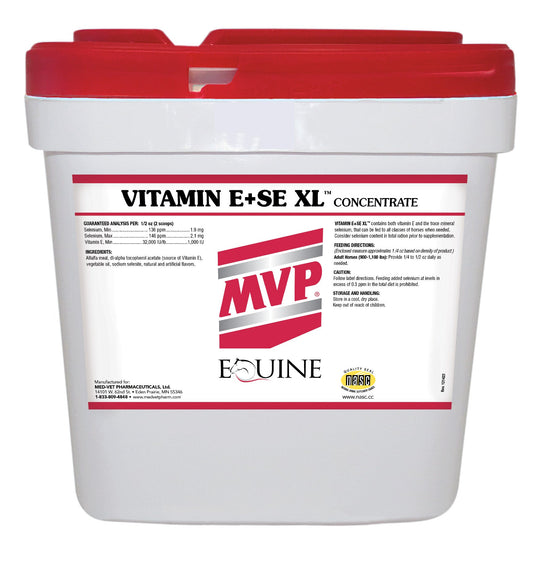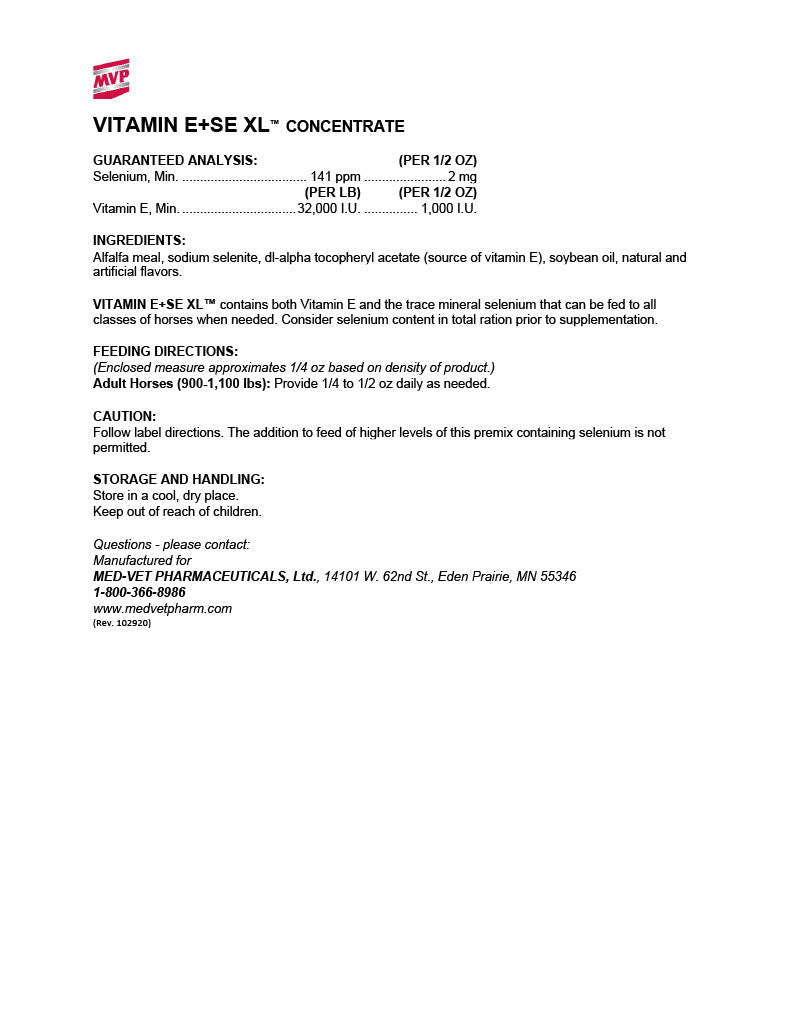MVP Vitamin E+SE XL (Meal) - Vitamin E & Selenium for Muscle Health
1 review
- Enhanced Antioxidant Support: High levels of vitamin E and selenium work synergistically to protect cells from oxidative stress, supporting overall health and performance.
- Immune System Boost: By combating free radicals, this supplement aids in maintaining a robust immune response, crucial for horses under physical stress or in training.
- Muscle and Nerve Function: Adequate vitamin E and selenium are vital for proper muscle contraction and nerve signaling, helping prevent muscle soreness and weakness.
- Compensates for Dietary Deficiencies: Horses without access to fresh pasture or those consuming hay may lack sufficient vitamin E, as levels diminish once grass is cut. Additionally, selenium content in soil varies by region, making supplementation necessary in deficient areas.
- Flat Rate Shipping
- Secure Checkout
- Simple Returns
